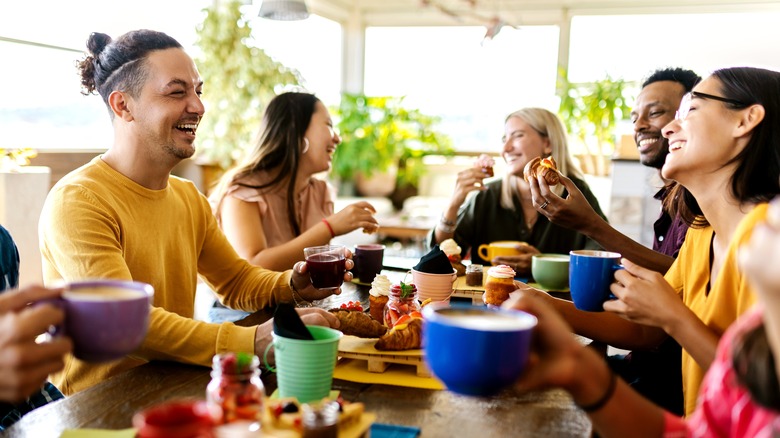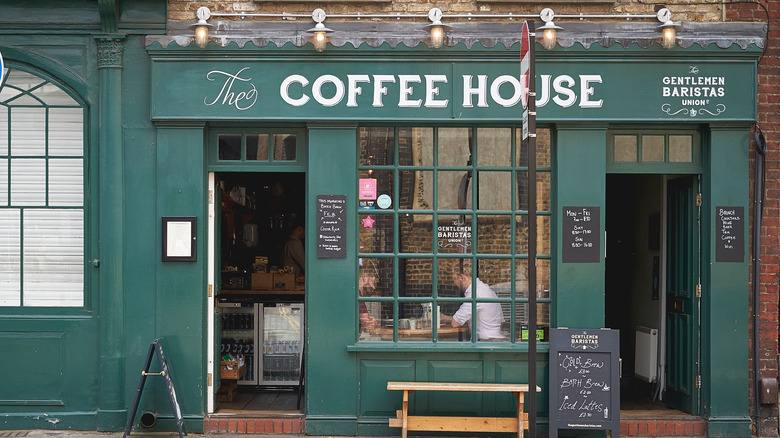Why London's First Coffeehouse Was So Controversial
For many, it might be hard to imagine a world where coffee isn't the go-to morning beverage. Many of our readers have at least two cups of coffee a day, putting a small dent in the two billion cups consumed around the world daily, per Full Coffee Roast.
As HuffPost reports, though, coffee only became the de facto drink in most of the world about four hundred years ago. The Coffee Express Roasting Company says up until the 1400s, coffee was primarily present in the Middle East and North Africa. Around the 1600s, it entered Europe by way of Venice and would almost instantly be met with controversy.
The National Coffee Association says that when coffee landed in Venetian ports in 1615, it was referred to by clergy members as the "bitter invention of satan," until Pope Clement VIII sampled it and gave it his official approval. This controversy didn't stop the spread of the drink, though. By the middle of the century, coffee houses would be fixtures across the continent, and plenty would create their own societal stir.
Coffee houses defied the rigid hierarchy
The first coffee house opened in London in 1652, according to the Coffee Express Roasting Company. It was opened by Pasqua Rosée and his partner Daniel Edwards, who traded in Turkish goods. According to HuffPost, until this point in history, it was common for many in Britain to start their days with a glass of beer due to poor-quality drinking water. Coffee would soon replace beer as the morning drink of choice for many Britons, which led to a different kind of stimulation — engaging conversation and debate.
History says that coffee houses were often seen throughout the world as places of social mingling, unrest, and even education. London's coffee houses quickly grew in number and were structured around large tables littered with newspapers, political literature, and other reading materials. They were also one of the few places in the city where the upper-class and lower-class citizens would mingle and exchange ideas, which made them a target for the monarchy's ire.
In 1672, King Charles II released a proclamation to attempt to limit the so-called "spreading of false news" that he felt occurred in coffee shops. He also ordered spies to eavesdrop in coffee houses and even ordered their closure until the public outcry became too much. So the next time you order coffee, feel free to talk about more than the weather to continue the rich tradition of coffee and conversation.

